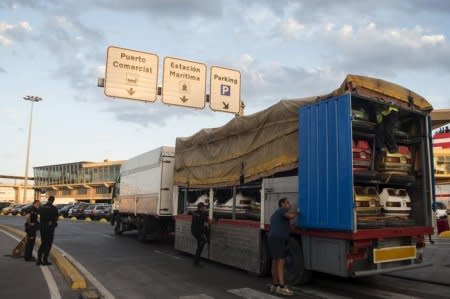Illegal migration to Spain likely rise further in 2018: EU agency

Thomson Reuters
MADRID (Reuters) - Europe's border agency expects a further increase in arrivals of illegal migrants to Spain by sea this year after numbers more than doubled in 2017, with the flows boosted by the use of fast boats, its director said on Friday.
Some 22,900 people were detected as they reached Spain via Morocco or Algeria last year, up from 10,231 in 2016, a steep increase that is boosted by migration from these two northern African countries.
Frontex border agency director Fabrice Leggeri said that while arrivals in Italy and Greece via Libya have dropped, total numbers using those routes remain above those to Spain and there are no signs of any major shift.
"Economic migrants don't want to end up in a country (Libya) where there are clashes between armed groups ... there are individual cases considering finding an alternative route," Leggeri told Reuters.
"But the (small) numbers do not make it possible to say there is a displacement," he said.
The EU's border agency was closely monitoring whether there was any shift, he said, by looking at countries such as Niger where migrants could be choosing to go either via Libya to Italy or north or west Africa to Spain.
Problems in Morocco's northern Rif region, together with the improvement of Spain's economic situation have played a role in the increased arrival of illegal migrants to the Iberian peninsular, but there are also sub-Saharan Africans crossing there, Leggeri earlier told a news conference.
Nearly 40 percent of migrants intercepted while crossing by sea to Spain were Algerian and Moroccan nationals, according to Frontex data.
"The flows arriving from Maghreb countries to Spain are very likely to increase (in 2018)," Leggeri said, adding that speed boats, also related to drug trafficking, were being used to move migrants.
Frontex was finalising plans to make a border operation in the west Mediterranean, that so far only worked in the summer, permanent, with increased use of air surveillance, he said.
(Reporting by Ingrid Melander; Editing by Paul Day and Toby Chopra)
See Also:

 Yahoo News
Yahoo News 
